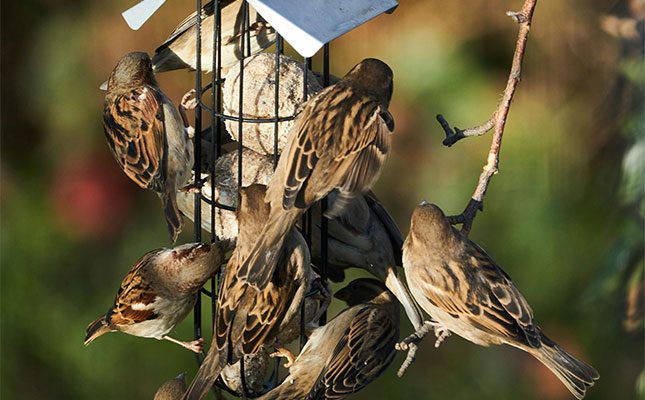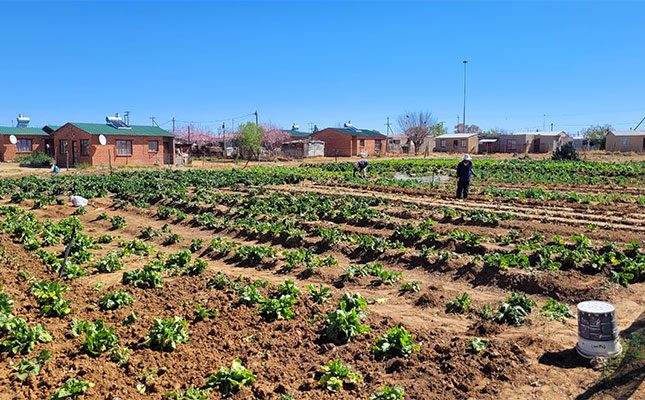
As warm-blooded creatures, birds require extra energy to stay warm and maintain their body temperature. The colder their environment, the more body heat they lose.
To offset this heat loss, birds must eat more food to fuel their metabolisms, explains scienceofbirds.com. But natural food sources like seeds and insects are limited during winter.
The days are also shorter, reducing the number of daylight hours that birds can forage for what little food there is.
You can help the feathered visitors to your garden with budget-friendly options or whip up quick and easy treats for them in your kitchen.
What to feed garden birds
Barbets, loeries, and bulbuls relish seasonal fruit like apples, bananas, guavas, and citrus, while commercial seed mixes appeal to doves, sparrows, red-headed finches, bronze mannikins, and many other seed-eaters.
Suet, made of animal fat mixed with various ingredients including peanuts, dried fruits or dried insects, is to birds what chocolate is to humans – completely irresistible! This high-protein, high-fat treat in ball or slab form helps fatten them up and maintain their energy levels.
Specialised wire cage feeders for suet are available in pet stores, but some suet varieties come ready to hang from a branch.
Suet can be quite expensive to keep supplying, though, as birds often devour these treats in a few hours. The good news? You can easily make a budget-friendly version at home. Keep reading to find out how.
Raw peanuts are another favourite, providing protein, healthy fats, and essential vitamins and minerals.
Shelled peanuts can be placed in tube feeders with small openings, while mesh feeders are great for unshelled peanuts, allowing birds to cling on while they peck at the shells to reach the nuts.
Smear organic or ‘no added salt or sugar’ peanut butter on fruit pieces as a nutritious treat.
Home-made bird food
Try your hand at some of these DIY bird treats.
- Simple suet treats: combine birdseed, oat flakes, oatmeal, and raw crushed peanuts in a bowl.
Melt beef suet or lard (from your local butchery or supermarket) in a saucepan and slowly add the dry ingredients while stirring well until it becomes a sticky mixture.
Roll portions into balls, wrap them in cling wrap and leave them to set in the fridge overnight.
A clever idea courtesy of gardenersworld.com involves taking clean, empty 175ml yoghurt tubs, piercing a hole in the bottom of each tub, threading a string through, and tying a knot at the base.
Then, spoon your suet mixture into the tubs and leave it in the fridge overnight. By morning, the mixture will have solidified.
Cut away the tubs, create a loop at the top of each string, and hang your home- made treats on various branches.
- Home-made seed mix: combine unsalted sunflower seeds, nuts like walnuts and pecans, white millet, oats and dried fruit pieces.
- Orange treat: cut an orange in half, scoop out the insides, chop them up and place in a bowl. Combine with pure almond butter (no sugar or salt added), oats, and dried cranberries. Fill the halves with this nutritious mixture and put them onto the spikes on your feeding table.
It is important to note the following:
- Place your feeders in a safe place away from your dogs, cats, and human activity.
- While many people feed bread, it’s not nutritious for birds, and large chunks can block their digestive tracts and can go mouldy quickly.
- Feed smaller amounts frequently, as larger amounts will be spilled or will spoil, and discard spoiled food.
- Keep your feeders clean to prevent the spread of disease. Wash them with one part vinegar, to three parts water, every two weeks.
Get trusted farming news from Farmers Weekly in Google Top Stories.
➕ Add Farmers Weekly to Google ✔ Takes 10 seconds · ✔ Remove anytime






